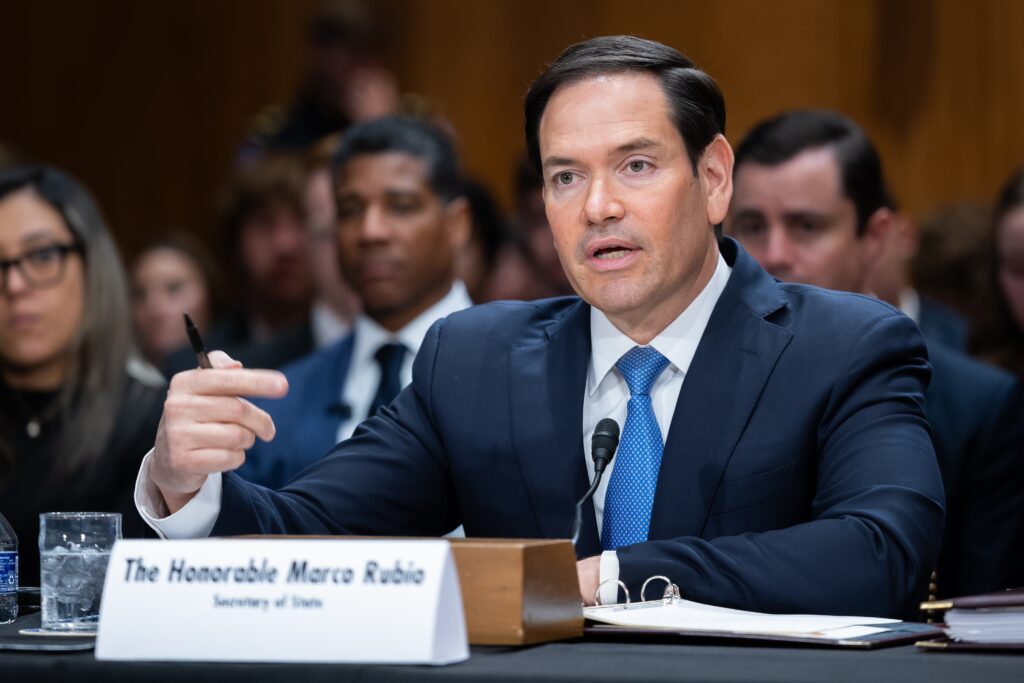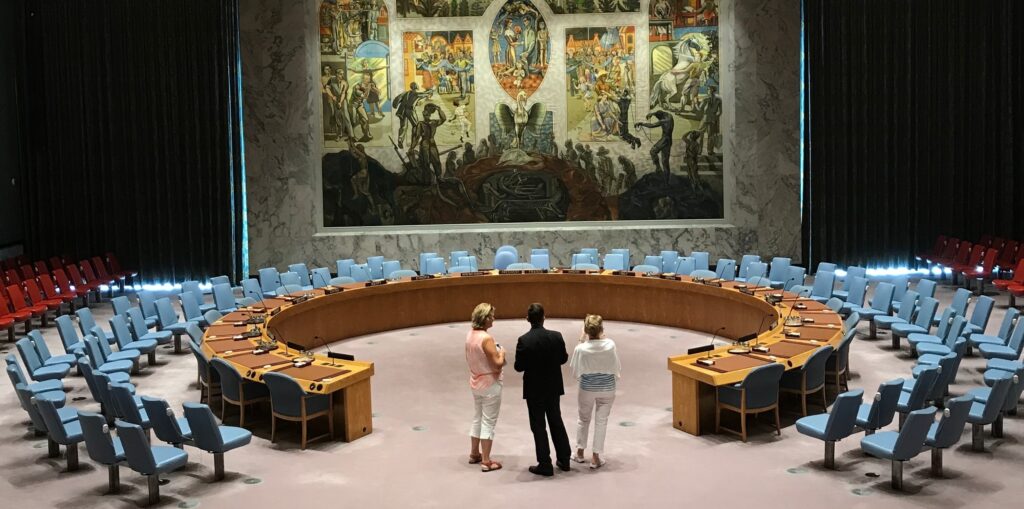Let’s be honest: 2024 was a tough year. From rising temperatures to rising conflict, there’s no question that the world felt the heat. But despite — perhaps even because of — so many challenges, several wins proved we still have it in us to do great things.
As we wind down 2024, we asked our colleagues for highlights from the year that offered a bit of hope. Here are a few UN moments that mattered, brought to you by the team at the UN Foundation.
1. The world… agreed!
After years of intense debate, world leaders adopted the Pact for the Future, accelerating action on the Sustainable Development Goals and setting a course for redesign of some of the largest institutions on the planet. While the UN is never one to risk hyperbole, it’s no stretch to say that this is the widest-ranging international agreement in years, covering issues as broad as historical underrepresentation of low- and middle-income countries, nuclear disarmament and the role of youth in governance.
Why it matters: While much of the focus on the UN centers on the Security Council and news that grabs the headlines, this was a reminder that the lion’s share of the work of the UN is the expansive lift of multilateral negotiations that go from the deepest seabeds to the farthest planets. That we had consensus on an agreement with such wide-ranging implications was itself a victory.
2. We committed to bridge the digital divide.
Among the most significant wins of the Pact for the Future was the Global Digital Compact. The GDC tackles critical issues like digital connectivity, human rights online, artificial intelligence and mis- and disinformation. This ambitious agreement reaffirms the centrality of digital cooperation in addressing global challenges and ensuring internet access for the 2.8 billion people still offline.
Why it matters: It’s a bold step toward ensuring the internet is a safe, accessible and equitable space for everyone. And bonus for U.S. observers: much of the content of the compact was a reflection of bipartisan legislation previously hashed out in Congress, reminding us that U.S. policy continues to set global direction.
3. We put superbugs on notice.
In September, the UN passed a Political Declaration on Antimicrobial Resistance. Way more than just a statement, this rallies the political will and financial incentive to follow through on new global targets that include reducing AMR-related deaths by 10% by 2030 and curbing antibiotic misuse in people, animals and agriculture. In adopting the commitment, UK’s Foreign Secretary said, “To those who say the world is too divided to agree on anything meaningful, we have shown them how wrong they are.”
Why it matters: AMR is increasingly recognized as one of the world’s most urgent health challenges, responsible for approximately 1.3 million deaths globally each year, which could explode exponentially with devastating costs to national health systems and economies if antibiotic drugs were to cease being effective. By convening health and government leaders, survivors, manufacturers, pharma, civil society and advocates, the world is fighting back.
4. Women raised their voices in pursuit of peace.
For too long, the mothers, wives, daughters and sisters who disproportionately bear the burden of conflict have been denied a seat at the peacemaking table. This, despite a mountain of evidence showing that women’s inclusion leads to more durable peace agreements. Finally, however, this year saw the launch of the Common Pledge to promote women’s participation in peace negotiations. By committing to this pledge, nations vowed to take concrete actions toward gender equity in conflict resolution.
Why it matters: As U.S. Ambassador to the UN Linda Thomas-Greenfield rightly noted, “Women are the key to ending conflict – and preventing it in the first place.”
Also, it’s 2024. This pledge is long overdue.
“Women are the key to ending conflict – and preventing it in the first place.”
Linda Thomas-Greenfield, U.S. Ambassador to the UN
5. Youth took a stand for the future.
As with women asserting their agency, younger generations are also pulling up a chair at the global decision-making table. In 2024, the Declaration on Future Generations was passed and the UN Youth Office established – both signaling a commitment to long-term thinking about who gets to decide on the future of this planet. These initiatives ensure the voices of tomorrow’s citizens shape today’s global decisions.
Why it matters: More than 10 billion people will be born this century; their futures depend on the decisions we make now. Their lives and eventual ability to effectively enjoy all human rights and meet their needs are already being influenced by our actions today. These people are distinct from and – by current demographic projections – will be vastly more numerous than present generations.
6. From debt to development, conversations around finance got real.
The UN Capital Development Fund underwent a major revamp, proving its worth as a financial innovator for the world’s 45 least developed countries. UNCDF makes real change for real people, like moving individuals from refugees to taxpaying entrepreneurs. With new leadership and an emphasis on blended finance, UNCDF continues to drive impactful investments in underserved communities. This came at the same time an important process continues around Financing for Development, as African nations seek reforms to international financial institutions like the IMF and World Bank.
Why it matters: The world is increasingly recognizing the shifting geopolitics of wealth and epicenters of capital. To create a more just – and profitable – global economy, we need more voices from the Global South and from low- and middle- income countries driving the dialogue.
The Bottom Line
In a world rife with division, the UN continues to tackle urgent global challenges. From health crises to digital equity, these 2024 milestones prove that multilateralism isn’t just alive — it’s essential.




